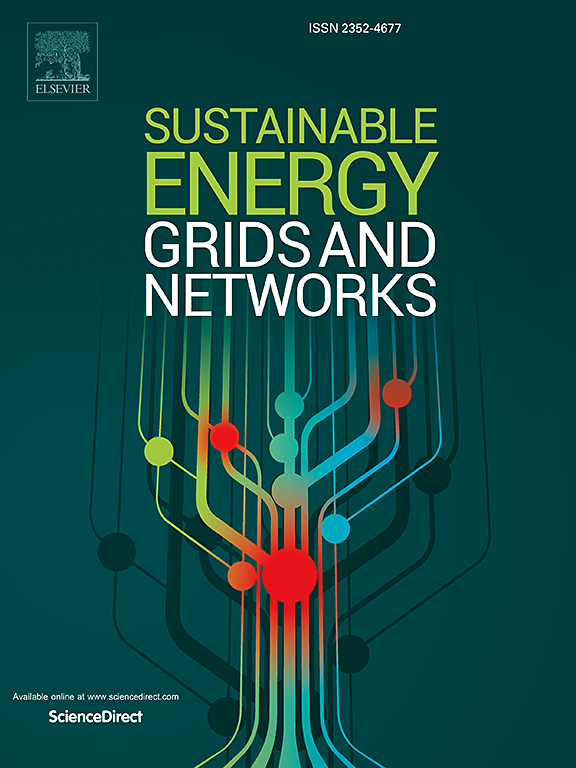Cooperative trading in smart-grid networks
IF 5.6
2区 工程技术
Q2 ENERGY & FUELS
引用次数: 0
Abstract
Continuous Double Auction (CDA) methods provide an efficient mechanism for price matching between buyers and sellers. Hence, these techniques have been adopted in smart-grid and micro-grid scenarios for Peer-to-Peer (P2P) energy trading. However, existing CDA methods either violate the natural ordering of P2P trading or introduce considerable overhead or make unrealistic assumptions about the underlying communication setup. In this paper, we introduce a CDA method involving trading agents that are coordinated with token allocation system for participation in the smart-grid market. Our proposed trading mechanism minimizes the natural order violations in the trading, and can recover from issues like token loss arising due to node or network connectivity issues. We provide algorithms for different operations of the CDA such as token request, token allocation, trading, etc. The proposed CDA mechanism has been evaluated with publicly available energy demand data and compared with another CDA method to show that it reduces natural ordering violations. Subsequently, we describe a variant of the CDA method where bids/asks from different participants are queued up for potential future price matches, thereby elaborating the scope for P2P trade. Both CDA variants can scale to large number of participants and can also work with heterogeneous bidding strategies adopted by clients.
智能电网中的协同交易
连续双拍卖(CDA)方法为买家和卖家之间的价格匹配提供了有效的机制。因此,这些技术已被用于智能电网和微电网场景中的点对点(P2P)能源交易。然而,现有的CDA方法要么违反了P2P交易的自然顺序,要么引入了相当大的开销,要么对底层通信设置做出了不切实际的假设。在本文中,我们引入了一种涉及交易代理的CDA方法,这些交易代理与代币分配系统相协调,以参与智能电网市场。我们提出的交易机制最大限度地减少了交易中的自然秩序违规,并可以从由于节点或网络连接问题而导致的令牌丢失等问题中恢复过来。我们为CDA的不同操作提供算法,如令牌请求、令牌分配、交易等。利用公开可用的能源需求数据对提出的CDA机制进行了评估,并与另一种CDA方法进行了比较,表明它减少了自然顺序的违反。随后,我们描述了CDA方法的一种变体,其中来自不同参与者的出价/要价排队等待潜在的未来价格匹配,从而详细说明了P2P交易的范围。这两种CDA变体都可以扩展到大量参与者,并且还可以与客户采用的异构投标策略一起工作。
本文章由计算机程序翻译,如有差异,请以英文原文为准。
求助全文
约1分钟内获得全文
求助全文
来源期刊

Sustainable Energy Grids & Networks
Energy-Energy Engineering and Power Technology
CiteScore
7.90
自引率
13.00%
发文量
206
审稿时长
49 days
期刊介绍:
Sustainable Energy, Grids and Networks (SEGAN)is an international peer-reviewed publication for theoretical and applied research dealing with energy, information grids and power networks, including smart grids from super to micro grid scales. SEGAN welcomes papers describing fundamental advances in mathematical, statistical or computational methods with application to power and energy systems, as well as papers on applications, computation and modeling in the areas of electrical and energy systems with coupled information and communication technologies.
 求助内容:
求助内容: 应助结果提醒方式:
应助结果提醒方式:


